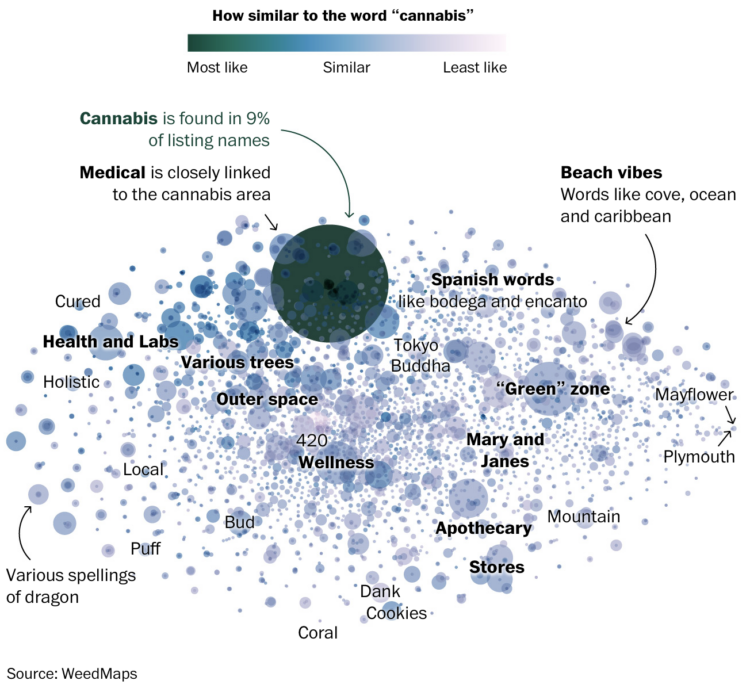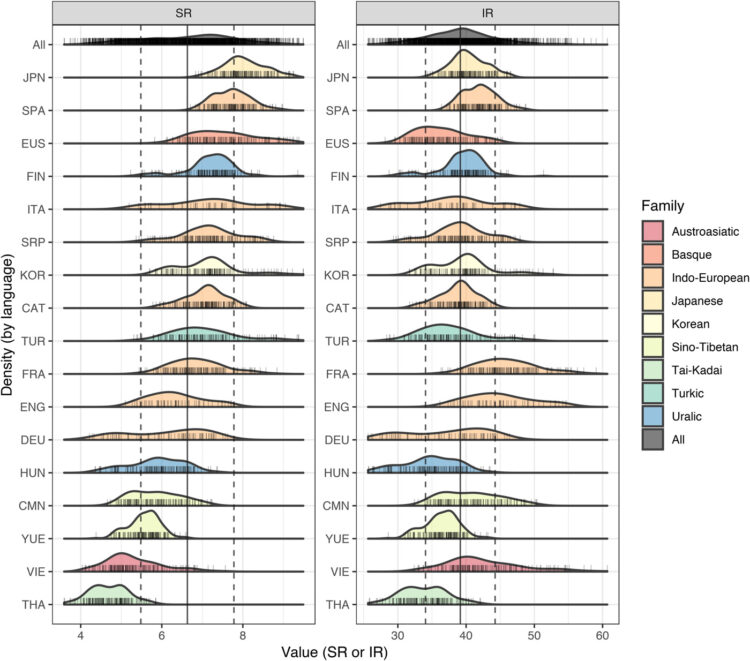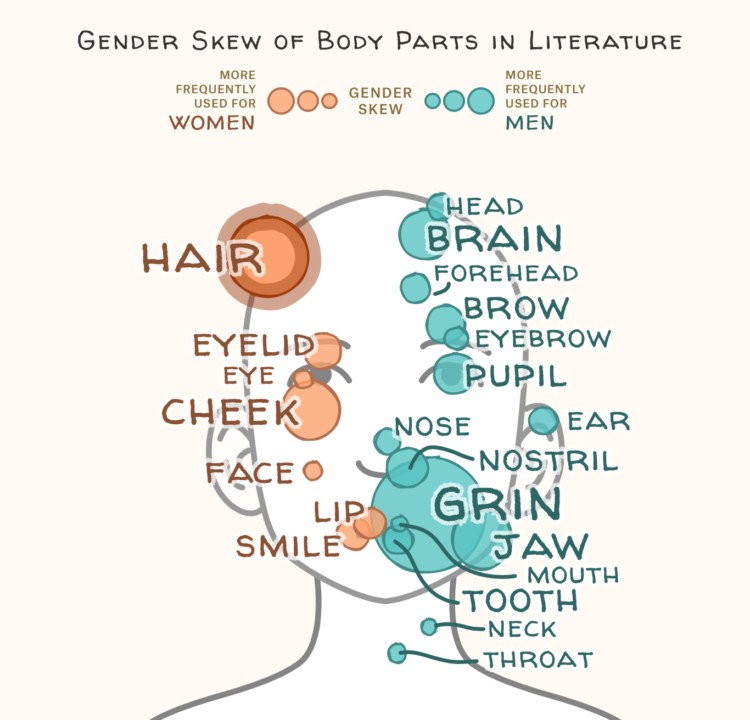Daniel Wolfe for The Washington Post looked at the similar word choices across cannabis business names:
To check if companies are distinguishing themselves, we analyzed every dispensary listing from WeedMaps, a map directory for local cannabis distributors. Here’s what patterns emerged when we examine the company’s name through a language model.
The premise is that businesses should aim for brand differentiation, and if all the dispensaries have similar names, it’s tough for any one to stand out.
I guess that’s true, but all I could think about was all the Chinese restaurants that I’ve been to, which also have similar names, even in the same city. People definitely are still able to pick out the good places.
Tags: business, cannabis, Washington Post, words








 In the early 1990s, the CIA
In the early 1990s, the CIA